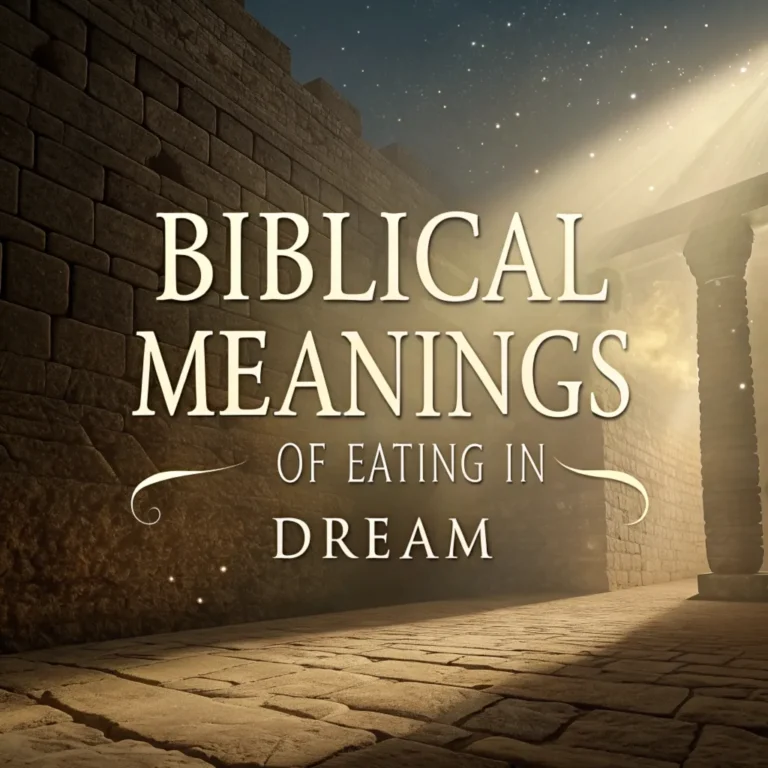16 Bible Verses for When You Feel Hopeless: Restore Hope in Times of Despair
In times of despair, feeling hopeless can be overwhelming. However, the Bible offers profound wisdom and encouragement that can uplift our spirits and restore our hope.
This post presents 16 powerful Bible verses that remind us of God’s unwavering love, strength, and promises.
Each verse serves as a beacon of light, guiding us through the darkness and reassuring us that we are never alone in our struggles.
Let’s explore these verses together and discover the strength they provide in our most difficult moments.

Key Takeaways: Finding Hope in Scripture
- God’s unwavering love supports us through difficult times
- Scripture reminds us that hope is a powerful force for overcoming challenges
- The Bible offers practical guidance for dealing with feelings of hopelessness
- Trusting in God’s plan can provide peace during uncertain periods
- These verses emphasize the temporary nature of our struggles and the eternal nature of God’s promises
- Prayer and faith are essential tools for restoring hope
- The Bible encourages us to find strength in community and support from fellow believers
- These scriptures highlight the importance of perseverance in the face of adversity
- God’s word provides reassurance of His constant presence in our lives
- These verses teach us to focus on eternal perspectives rather than temporary circumstances
- The Bible offers strategies for renewing our minds and shifting our focus from despair to hope
- Scripture reminds us that God’s power is made perfect in our weakness
Jeremiah 29:11 – God’s Plans for Our Future
Jeremiah 29:11 offers a powerful reminder of God’s intentions for our lives. It states, “For I know the plans I have for you, declares the Lord, plans to prosper you and not to harm you, plans to give you hope and a future.” This verse serves as an anchor for those feeling adrift in uncertainty.
When life seems directionless, this scripture reassures us that God has a specific plan for each of us. It’s not just any plan, but one designed for our prosperity and well-being.
The verse emphasizes that God’s plans include hope and a future, two elements often missing when we feel hopeless.
This passage encourages us to trust in God’s foresight, even when we can’t see the path ahead.
It reminds us that our current circumstances, no matter how bleak, don’t define our ultimate destiny. God’s plans for us extend beyond our present struggles, offering a brighter future filled with hope.
Psalm 34:17-18 – God’s Presence in Our Pain
In times of despair, Psalm 34:17-18 offers comfort: “The righteous cry out, and the Lord hears them; he delivers them from all their troubles. The Lord is close to the brokenhearted and saves those who are crushed in spirit.”
This passage reassures us that God hears our cries for help. It portrays a God who is not distant or indifferent to our pain, but one who actively listens and responds.
The verse promises that God delivers us from our troubles, offering hope for relief and resolution.
Moreover, it emphasizes God’s closeness to those who are suffering. When we feel brokenhearted or crushed in spirit, this scripture reminds us that God draws near.
His presence brings comfort and the promise of salvation from our distress.
Romans 15:13 – The God of Hope

Romans 15:13 is a powerful verse about the nature of God and His ability to fill us with hope: “May the God of hope fill you with all joy and peace as you trust in him, so that you may overflow with hope by the power of the Holy Spirit.
This verse introduces us to God as the source of hope. It suggests that hope is not something we must generate on our own, but rather a gift that God provides. As we trust in Him, He fills us with joy and peace, two qualities often absent in times of hopelessness.
The passage also speaks of overflowing with hope. This implies more than just a small measure of hope, but an abundance that spills over into other areas of our lives.
This overflow comes through the power of the Holy Spirit, emphasizing the supernatural nature of the hope God provides.
Isaiah 41:10 – God’s Strength in Our Weakness
When feeling weak and afraid, Isaiah 41:10 offers reassurance: “So do not fear, for I am with you; do not be dismayed, for I am your God. I will strengthen you and help you; I will uphold you with my righteous right hand.”
This verse begins with a command against fear, followed immediately by the reason: God’s presence with us.
It addresses the feeling of dismay that often accompanies hopelessness, countering it with the reminder of God’s personal relationship with us.
The passage then provides three powerful promises:
- God will strengthen us
- God will help us
- God will uphold us
These promises paint a picture of God actively supporting us through our difficulties. The image of being upheld by God’s “righteous right hand” conveys both strength and intimacy, reassuring us of God’s personal involvement in our struggles.
Philippians 4:13 – Strength Through Christ

Philippians 4:13 is a well-known verse that speaks to our ability to overcome challenges: “I can do all things through Christ who strengthens me.
This short but powerful statement reminds us that our strength comes not from ourselves, but from Christ. It suggests that with Christ’s strength, there are no limitations to what we can accomplish or endure.
The verse doesn’t promise that everything will be easy, but it does assure us that we have the resources to face any situation.
This can be particularly comforting when feeling hopeless, as it reminds us that we’re not facing our challenges alone or in our own strength.
Psalm 42:11 – Questioning Despair
Psalm 42:11 provides a thoughtful approach to dealing with feelings of hopelessness: “Why, my soul, are you downcast? Why so disturbed within me? Put your hope in God, for I will yet praise him, my Savior and my God.”
This verse is unique in its self-reflective nature. The psalmist questions his own feelings of despair, demonstrating that it’s okay to examine our emotions. This introspection can be a helpful first step in addressing feelings of hopelessness.
The passage then offers a solution: putting hope in God. It suggests that hope is a choice we can make, even when our emotions are telling us otherwise.
The verse concludes with a declaration of future praise, indicating a belief that current circumstances will improve.
2 Corinthians 4:16-18 – Eternal Perspective
In 2 Corinthians 4:16-18, we’re encouraged to look beyond our current troubles: “Therefore we do not lose heart. Though outwardly we are wasting away, yet inwardly we are being renewed day by day.
For our light and momentary troubles are achieving for us an eternal glory that far outweighs them all. So we fix our eyes not on what is seen, but on what is unseen, since what is seen is temporary, but what is unseen is eternal.”
This passage offers several key points for combating hopelessness:
- It acknowledges our struggles but emphasizes inner renewal.
- It puts our troubles in perspective, calling them “light and momentary” compared to eternal glory.
- It encourages us to focus on the unseen and eternal, rather than the visible and temporary.
This shift in perspective can be powerful in overcoming feelings of hopelessness, reminding us that our current situation is not the end of the story.
Lamentations 3:22-23 – Daily Renewal of Hope
Lamentations 3:22-23 offers a beautiful reminder of God’s faithfulness: “Because of the Lord’s great love we are not consumed, for his compassions never fail. They are new every morning; great is your faithfulness.”
This passage is particularly powerful because it comes in the midst of a book filled with sorrow and lament. Even in the darkest times, the author recognizes God’s unfailing love and compassion.
The verse emphasizes the daily renewal of God’s mercies. This can be especially comforting when feeling hopeless, as it reminds us that each new day brings fresh opportunities for experiencing God’s faithfulness and compassion.
Romans 8:28 – God’s Good Purpose
Romans 8:28 offers reassurance of God’s overarching plan: “And we know that in all things God works for the good of those who love him, who have been called according to his purpose.”
This verse doesn’t promise that everything that happens will be good, but it does assure us that God can work all things together for good. This includes our struggles and times of hopelessness.
The passage reminds us that God is actively working in our lives, even when we can’t see or understand it. It encourages us to trust in God’s larger purpose, which can provide hope even in difficult circumstances.
Joshua 1:9 – Courage and God’s Presence
In Joshua 1:9, we find a command for courage backed by a promise of God’s presence: “Have I not commanded you?
Be strong and courageous. Do not be afraid; do not be discouraged, for the Lord your God will be with you wherever you go.”
This verse directly addresses feelings of fear and discouragement, which often accompany hopelessness. It doesn’t just suggest courage, but commands it, implying that courage is a choice we can make.
The basis for this courage is God’s constant presence. The promise that God will be with us “wherever you go” provides a foundation for hope, reminding us that we’re never alone in our struggles.
Psalm 46:1-3 – God Our Refuge
Psalm 46:1-3 paints a powerful picture of God as our refuge: “God is our refuge and strength, an ever-present help in trouble.
Therefore we will not fear, though the earth give way and the mountains fall into the heart of the sea, though its waters roar and foam and the mountains quake with their surging.”
This passage describes God as a refuge and source of strength, emphasizing His role as a present help in times of trouble.
It then goes on to describe extreme scenarios of natural disaster, using these as metaphors for life’s most challenging circumstances.
The key message is that even in the face of seemingly world-ending events, we need not fear because of God’s presence and protection. This can provide hope by reminding us that no situation is too dire for God to handle.
Proverbs 3:5-6 – Trusting God’s Guidance
Proverbs 3:5-6 offers wisdom for navigating life’s uncertainties: “Trust in the Lord with all your heart and lean not on your own understanding; in all your ways submit to him, and he will make your paths straight.”
This passage encourages us to trust God completely, rather than relying solely on our own understanding. When feeling hopeless, our perspective can become skewed, making this advice particularly relevant.
The verse promises that as we submit to God, He will guide our paths. This can provide hope by assuring us that we don’t need to figure everything out on our own – God is actively involved in directing our lives.
Matthew 11:28-30 – Rest for the Weary
In Matthew 11:28-30, Jesus offers an invitation to the weary: “Come to me, all you who are weary and burdened, and I will give you rest. Take my yoke upon you and learn from me, for I am gentle and humble in heart, and you will find rest for your souls. For my yoke is easy and my burden is light.”
This passage directly addresses those feeling burdened and tired, common experiences when hope is low. Jesus offers rest, not just physical, but for the soul.
The imagery of a yoke suggests partnership – Jesus isn’t promising to remove all burdens, but to share them, making them lighter and easier to bear. This can provide hope by reminding us that we don’t have to face our challenges alone.
1 Peter 5:7 – Casting Anxieties on God
1 Peter 5:7 offers a simple but profound instruction: “Cast all your anxiety on him because he cares for you.”
This verse encourages us to actively give our worries and fears to God. The word “cast” implies a deliberate action on our part, suggesting that we have a role to play in managing our anxieties.
The reason given for this action is equally important: because God cares for us. This reminder of God’s personal concern for our well-being can be a powerful source of hope when feeling alone or overwhelmed.
Hebrews 10:23 – Holding onto Hope
Hebrews 10:23 encourages perseverance in hope: “Let us hold unswervingly to the hope we profess, for he who promised is faithful.”
This verse portrays hope as something to be actively maintained, even in the face of circumstances that might cause us to waver. The word “unswervingly” implies a steadfast, unwavering commitment to hope.
The basis for this hope is the faithfulness of God. By reminding us of God’s trustworthy nature, this verse provides a solid foundation for hope even when our feelings or circumstances suggest otherwise.
Frequently Asked Questions
How can I find hope when everything seems hopeless?
Finding hope in seemingly hopeless situations starts with shifting your focus. Instead of dwelling on your circumstances, try to focus on God’s promises and His faithfulness. Reading and meditating on Bible verses about hope, like those mentioned in this post, can help renew your mind. Additionally, reaching out to supportive friends, family, or a faith community can provide encouragement and perspective.
Is it normal to feel hopeless sometimes?
Yes, feeling hopeless at times is a normal human experience. Even biblical figures like David, Elijah, and Job experienced periods of despair. The key is not to stay in that place of hopelessness. Recognize these feelings as temporary and use them as a prompt to seek God’s help and comfort.
How can I help someone who is feeling hopeless?
To help someone feeling hopeless, listen without judgment and offer empathy. Share encouraging scriptures and remind them of God’s love and faithfulness. Pray with and for them. Encourage professional help if the hopelessness persists or is accompanied by signs of depression. Sometimes, simply being present and showing you care can make a significant difference.
Can faith really help overcome feelings of hopelessness?
Yes, faith can be a powerful tool in overcoming hopelessness. It provides a larger perspective, reminding us that our current circumstances are not the end of the story. Faith in God’s love, power, and promises can provide hope even in the darkest times. However, it’s important to note that faith doesn’t always instantly remove feelings of hopelessness – it’s often a journey of gradually renewing our minds and hearts.
How often should I read these Bible verses about hope?
There’s no set rule, but regular engagement with Scripture can be beneficial. Consider reading one verse each day, perhaps as part of a morning or evening routine. You might also choose to focus on one verse per week, spending time meditating on its meaning and how it applies to your life. The key is consistency and allowing the words to sink deep into your heart and mind.

Samantha is the author of Inner Light Spirituality, where she shares insights and guidance to inspire others on their spiritual journeys. With a passion for exploring various spiritual traditions, Samantha aims to make spirituality accessible and relatable. Through her writing, she encourages readers to embrace their unique paths and find meaning in their experiences. When not writing, she enjoys meditating and connecting with nature.







